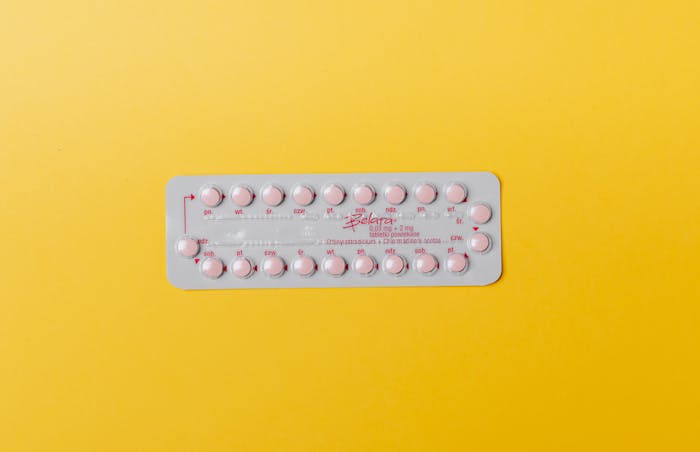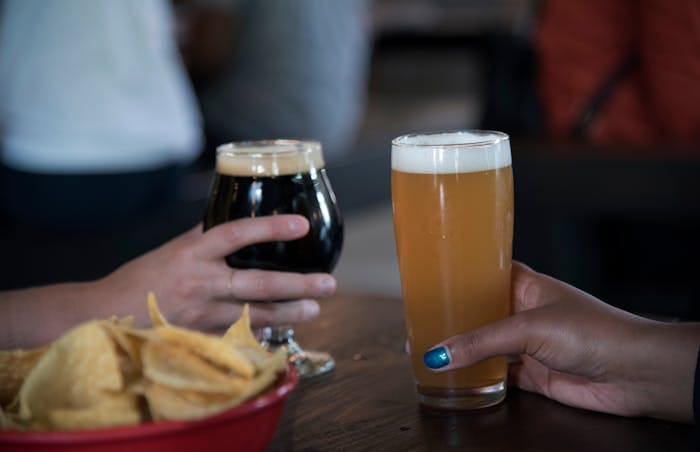Combining Birth Control and Alcohol: What are the Effects, Risks & Safety
Generally, it is safe to drink alcohol whilst on birth control, but there are some things to consider that could affect the effectiveness of the contraception.
What is Birth Control & How Does Alcohol Affect Its Use?

Birth control or contraception refers to all methods, devices or medication used to prevent pregnancy by adult women or young adults.
This includes short and long-term methods such as intrauterine devices (IUDs), contraceptive injections, hormonal contraceptives, birth control pills (oral contraceptives including the progestogen-only pill and combined pill), patches and condoms.
Overall, alcohol has been found not to impair the effectiveness of these forms of contraception. However, it may alter your judgement or behaviours which could affect how reliable your contraception is. [1]
What Risks Does Drinking Alcohol Have on Birth Control Use?
There are several ways that drinking alcohol could affect the effectiveness of birth control use.
One example is being under the influence of alcohol or drugs, which could lead you to forget to take your birth control pills or oral contraceptives.
Alcohol, especially heavy drinking, could also cause you to use condoms incorrectly or not at all. This increases the risks of unplanned pregnancy, as well as sexually transmitted infections (STIs).
Another way intoxication could affect your use of birth control is if you are sick within two hours of taking any birth control pills. It can take up to two hours for the pill to be absorbed by your body, so being sick within this window could cause your pill to be ineffective.
There are also medical complications of combining heavy alcohol use with birth control usage. Heavy drinking or binge drinking can increase complications of the blood, such as an increased risk of blood clots in the legs or lungs. [2]
When you are taking some forms of birth control, some women may experience an increased risk of blood clots, so drinking heavily will increase that risk further. [3]
Does Birth Control Affect Alcohol Tolerance?

People react differently to alcohol so it depends.
However, when you take birth control such as contraceptive pills, your liver has to metabolise both the alcohol and the pill.
This doesn’t cause you to become more drunk, but you might feel the effects of alcohol in your system for longer and therefore, you might be at increased risk of taking part in risky activities that could reduce the efficacy of your birth control. [4]
Does Alcohol Have Altering Effects on Different Types of Birth Control?
Many forms of birth control are available to help prevent unplanned pregnancy, and some are at least 99% effective when taken correctly. Some common types of birth control and their rates of effectiveness, as well as how alcohol can affect this, are below: [5]
- Intrauterine Devices (IUDs) – more than 99% effective and can stay in place for 3 to 10 years. Alcohol use is not known to reduce effectiveness.
- Implants – more than 99% effective and work for up to 3 years. Alcohol use is not known to reduce effectiveness.
- Injection – 94% effective and can last up to 3 months. Alcohol use does not tend to reduce effectiveness.
- Patch – 99% effective, but with typical use, it’s 91% effective. Alcohol use does not tend to reduce effectiveness but may interfere with weekly compliance. You must change the patch each week.
- Vaginal Ring – more than 99% effective when used perfectly and 91% effective with typical use. Alcohol use does not tend to reduce effectiveness, but it could interfere with compliance as the ring needs to be removed every 3 weeks.
- Combined/Progestin-Only Pill – more than 99% effective when used perfectly and 91% with typical use. The pill isn’t affected by alcohol use but alcohol consumption may alter daily compliance if you forget.
- Male Condom – 98% effective when used correctly and 82% effective with typical use. Alcohol use may reduce effectiveness as there is an increased risk of incorrect use or not using one altogether.
How to Stay Safe When Consuming Alcohol

Ultimately it is up to you to decide what birth control and method of contraception works best for you, but you should consider your alcohol use when choosing.
It is always best to drink in moderation and try sipping slowly or alternating between an alcoholic beverage and a soft drink.
You could also consider setting alarms so that you remember to take your birth control when you’ve been drinking.
If your birth control method is pills, drinking too much could cause you to forget or miss taking one of your pills. Missing one dose may not cause too much of a problem, as long as you take the missed pill as soon as you remember. [6]
However, missing multiple doses can cause your birth control to be ineffective and lead to an unplanned pregnancy.
If you think you may have a problem with alcohol, contact us today on 0800 088 66 86 for further advice and support.
Sources
[2] https://pubmed.ncbi.nlm.nih.gov/19730367
[4] https://pubmed.ncbi.nlm.nih.gov/6370017/
[5] https://www.ncbi.nlm.nih.gov/pmc/articles/PMC4148693/pdf/nihms200497.pdf
[6] https://health.cornell.edu/sites/health/files/pdf-library/missed-birth-control-pill.pdf




